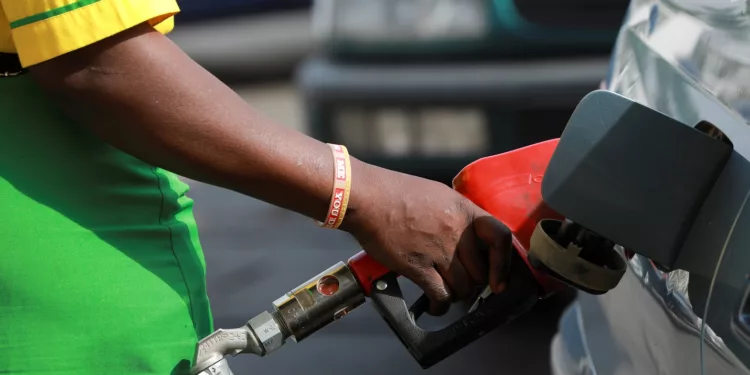Cost of importation of Premium Motor Spirit (PMS) also known as petrol is rising, fueling possible adjustment of pump price by marketers.
Experts in the petroleum industry sector have also cautioned that expected downward pricing of refined products from Dangote refinery may not be feasible as cost of crude whether supplied locally and in local currency would be priced in relation to international benchmark.
Speaking with our Correspondent on the sidelines of one day roundtable on “The Midstream and Downstream Petroleum Industry in Nigeria: The Roles of NMDPRA in ensuring Energy Security” one of the discussants and energy expert Henry Adigun, said as at today July 31, 2024 landing cost of petrol is N1,100 per litre aside from associated costs of trucking the product to dispensing outlets.
Adigun, also said that Nigerians should not expect a low priced product from Dangote refinery given that the quality of products from the facility is of high premium and also the crude pricing supply to the refinery is not lower than what it is sold in the international market.
According to him, the Nigerian National Petroleum Company Limited (NNPCL) is not going to sell crude below cost of production and since crude is an international product Nigeria must be guided by international best practices.
He also, warned about ongoing subsidy on petrol which has made the market uncompetitive, which he also said would continue to create disruptive supply arrangements.
In his submission, Adigun, called for a substantial review of fiscal policies that will entrench competition and strong regulatory environment.
Earlier in his review of the Downstream market, another industry expert Taiwo A. Ogunleye, said petroleum has remained an important part of both the world’s energy mix and the global economy and keystone of our modern energy system helping to drive the global economy.
Petroleum plays an essential role in shaping our lives from fuelling vehicles and generating electricity to producing a wide range of everyday products.
The petroleum industry involves a wide range of commercial activities from the exploration of reserves deep in the ground to the sale of the final product to the end customer.
The industry is frequently shown in the form of a ‘value chain’, specifically a set of activities performed sequentially in order to deliver a final product, and includes upstream, midstream and downstream sectors.
Ogunleye, also spoke on regulatory issues as key to creating efficiency and transparency in the value chain.
Citing a Report issued by the Oil, Gas, and Mining Policy Division of the World Bank, he agreed that “Inadequate regulation and enforcement can also harm the efficiency of fuel supply.
Sector regulations that have not been updated in decades, lack sufficient coverage, or list outdated fuel specifications may deter entry of experienced operators adhering to high standards.
He noted that an efficient legal framework for the downstream petroleum sector requires legislation that clearly defines and limits the role of the government in order to avoid undue interference and establishes principles and rules for the private and public participants in the supply chain in order to create a level playing field and promote fair, transparent, and healthy competition.
The report stated further that all sectors of the economy can benefit from an efficiently managed downstream oil sector that delivers petroleum products in the quantity and at the quality required at least cost.
For a given price of a petroleum product on the world market, end-user prices net of taxes are affected by a number of factors, that includes market size and economies of scale, mode of product transport in terms of cost per litre of fuel transported over land, the least expensive is pipeline transport (in a handful of cases in Sub-Saharan Africa that have the requisite scale economy), followed by rail, and finally by trucks
Liberalised versus controlled pricing
protection given to inefficient domestic suppliers.
He also spoke of energy security which is the continuous availability of energy in varied forms, in sufficient quantities, and at reasonable prices.
He explained that energy security implies availability, affordability, accessibility and acceptability.
In his explanation availability ensures that energy supplies are available in sufficient amounts while affordability aims to have these resources available at sufficiently-low prices.
Accessibility focuses on ensuring all citizens have access to energy, which is to some extent about ensuring that reliable infrastructure is in place to ensure a robust supply for the end user, but this is generally interpreted in practice as ensuring that energy prices are kept low and fuel poverty is minimised.
He said acceptability is concerned with the negative impacts of energy, such as pollution and environmental damage, and ensuring that these impacts are minimised in order to make the energy acceptable to the customer.



